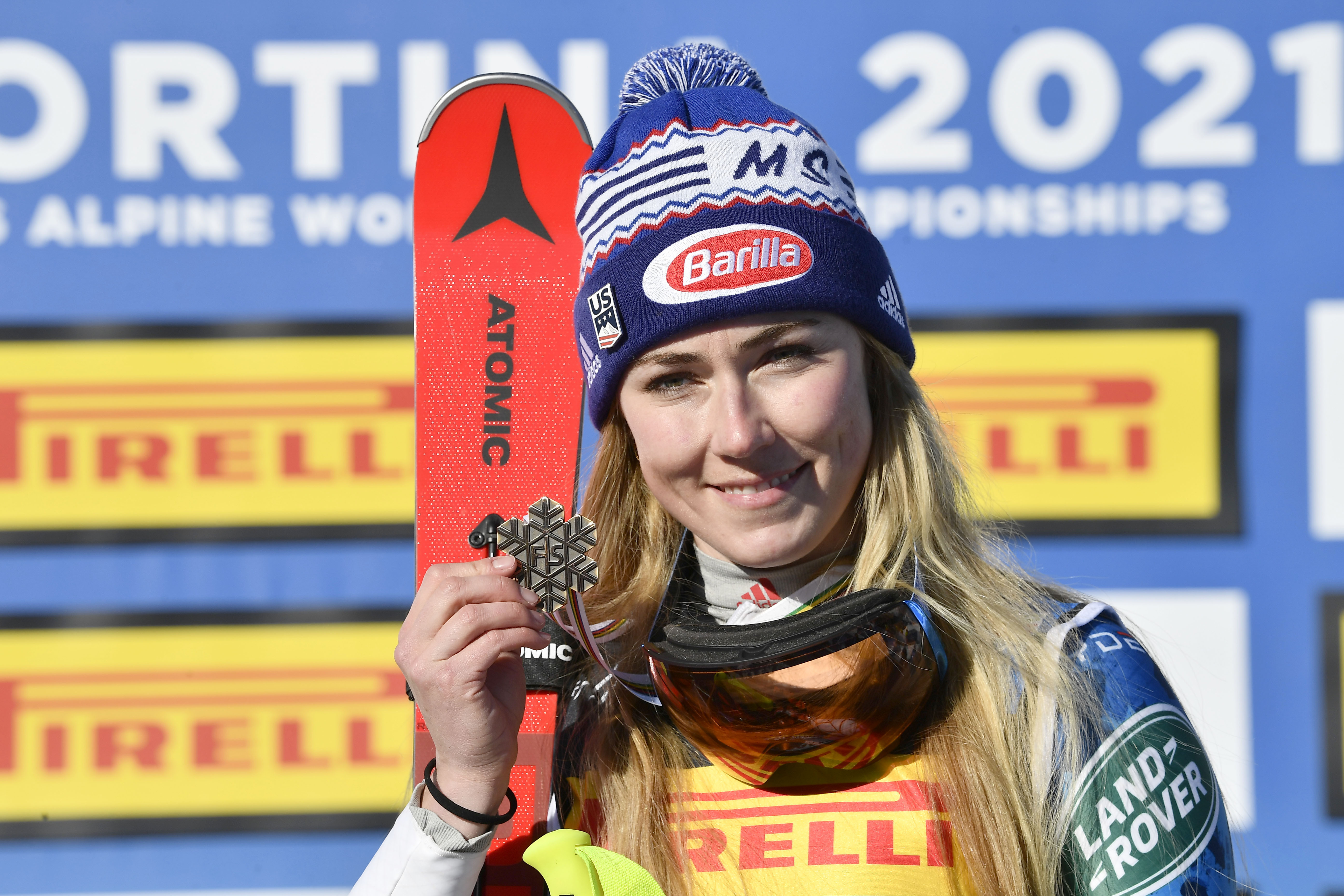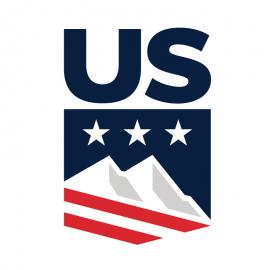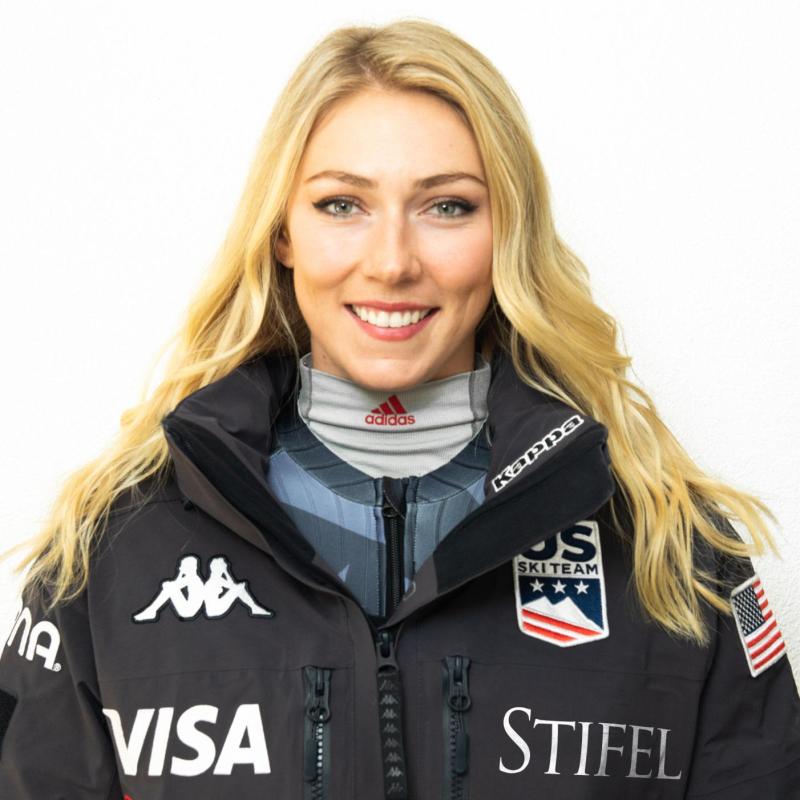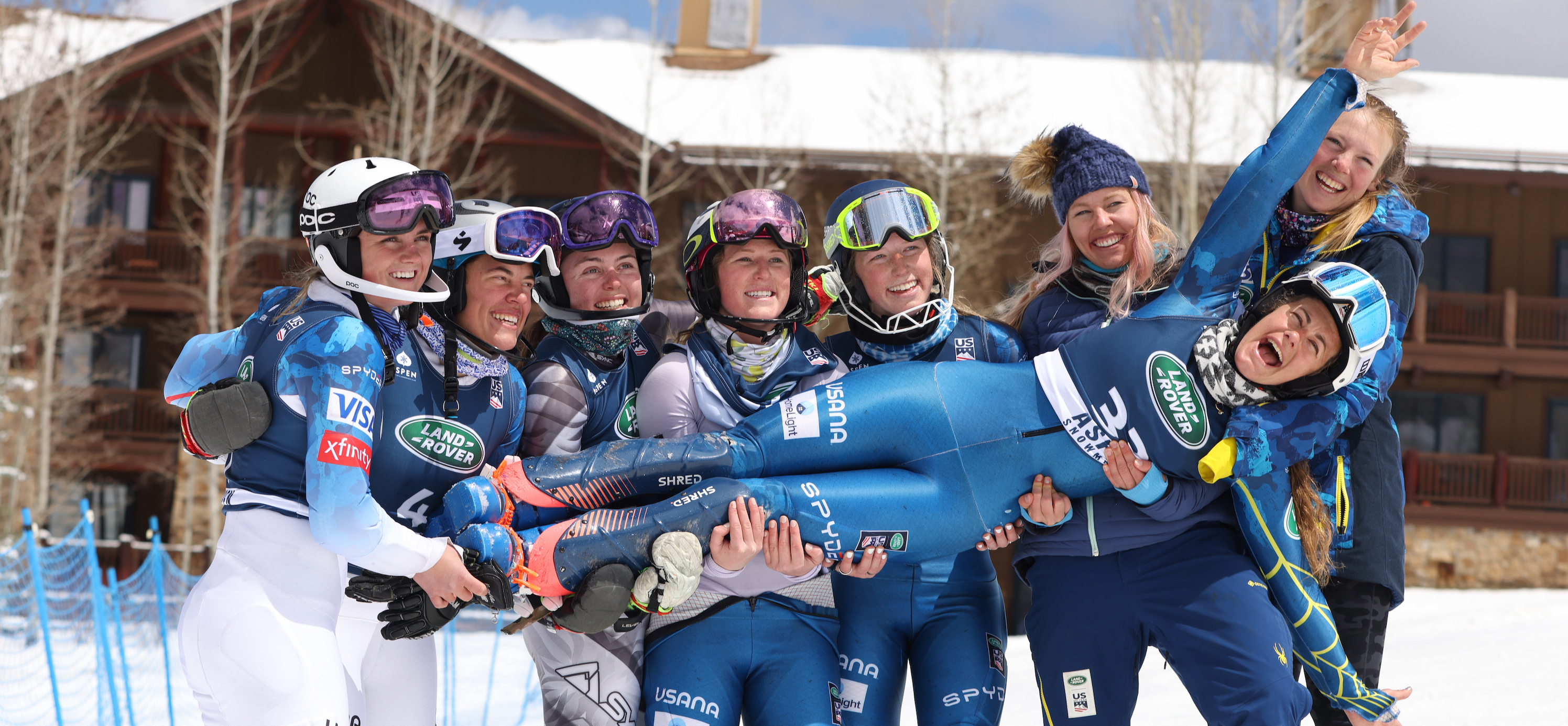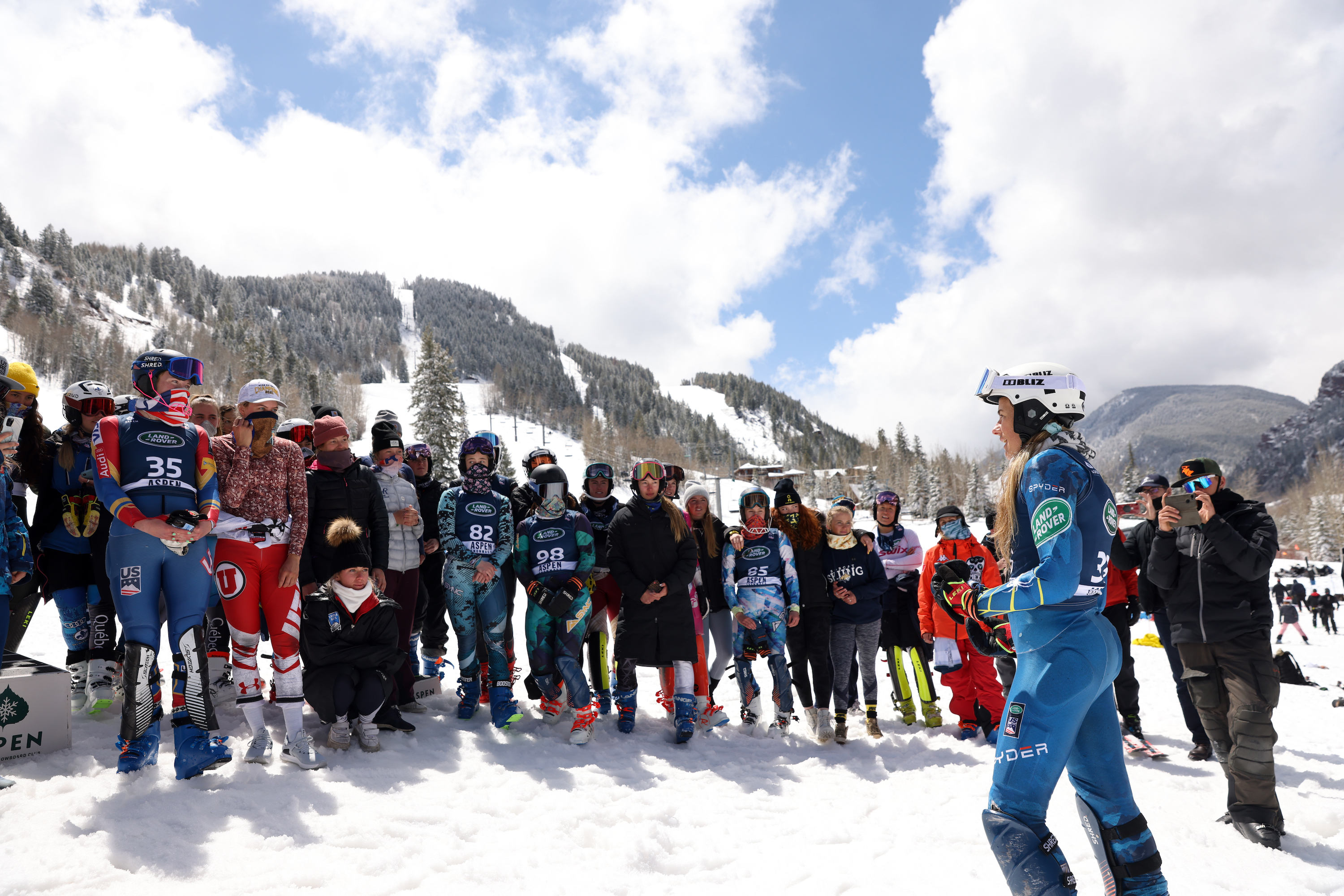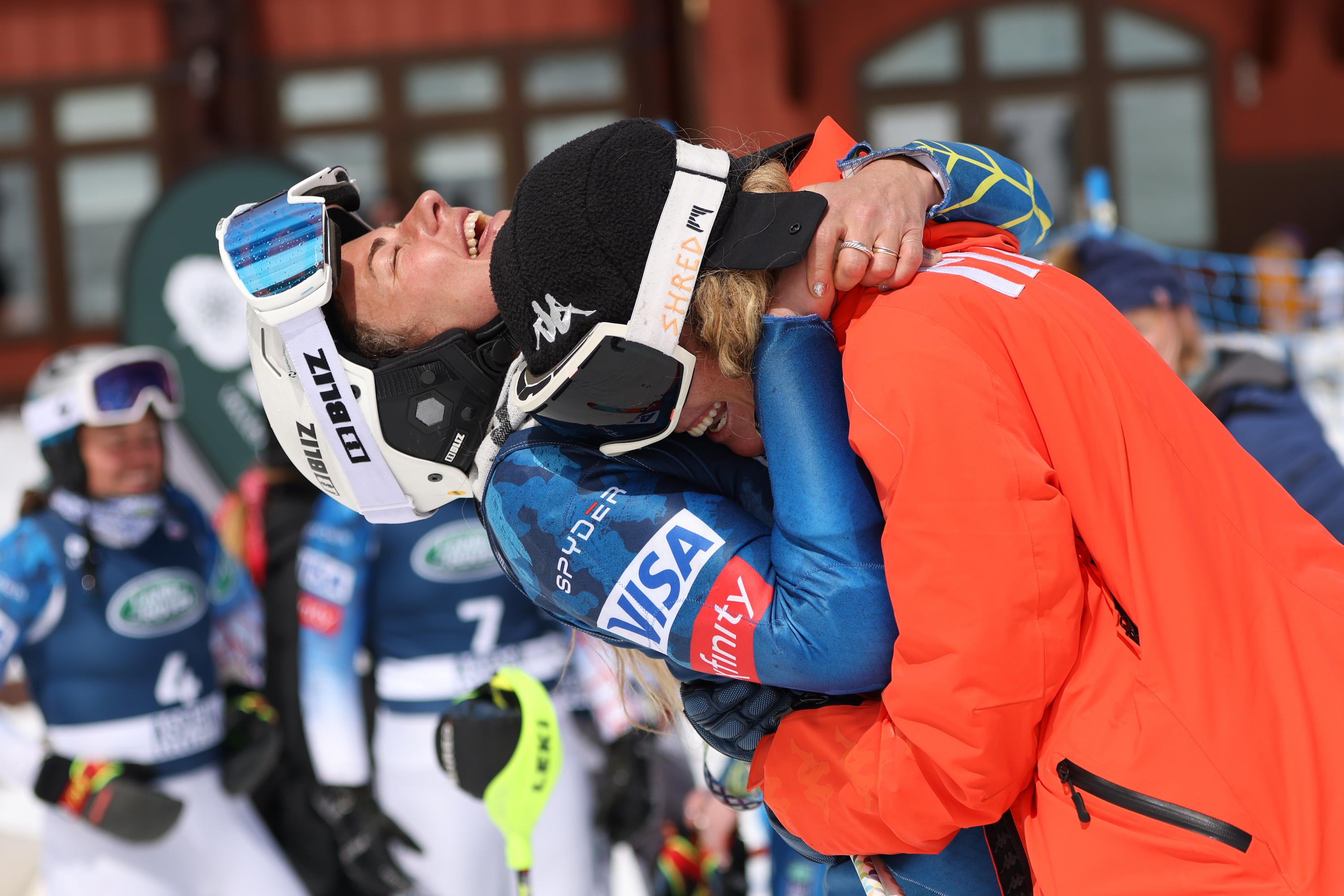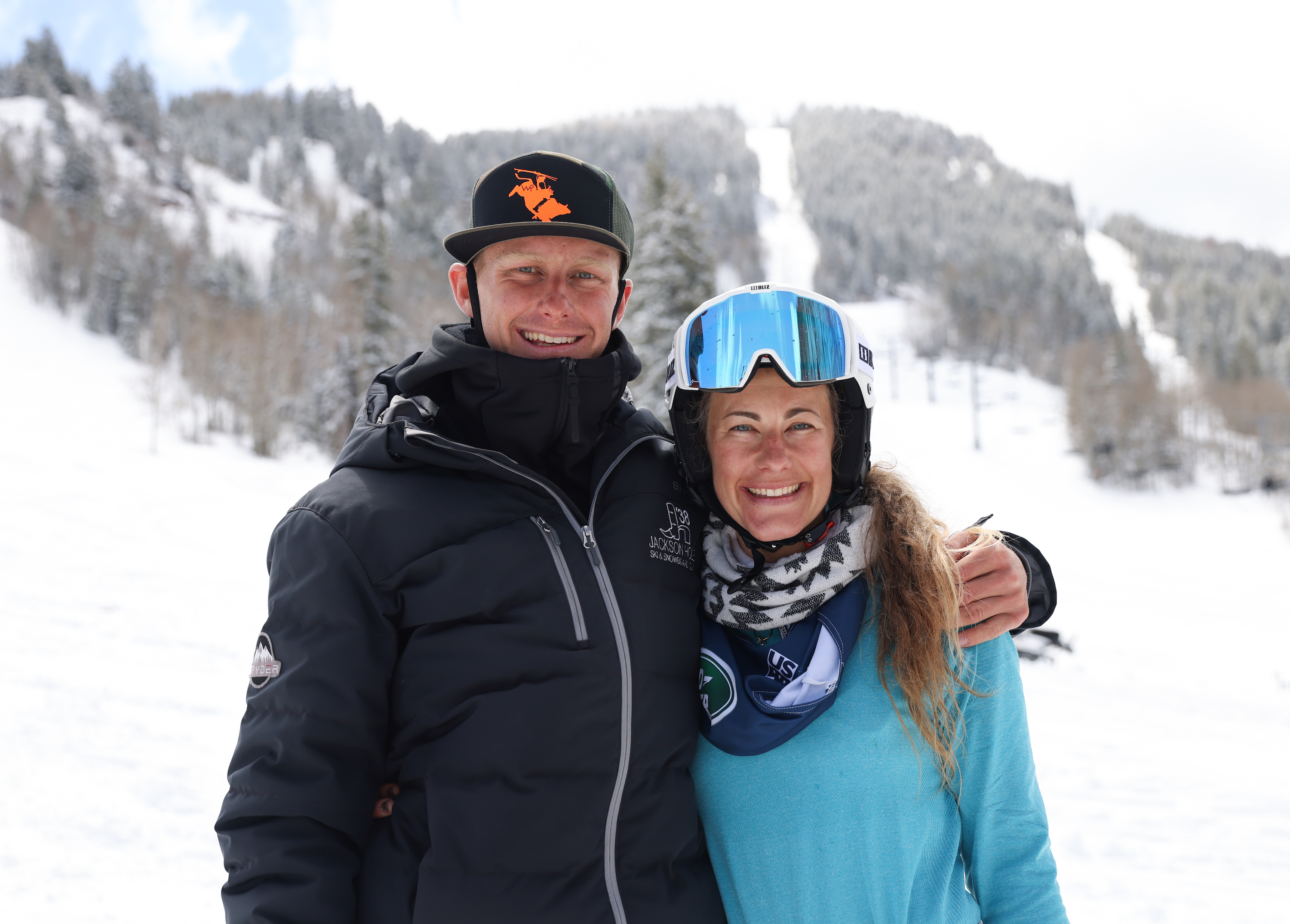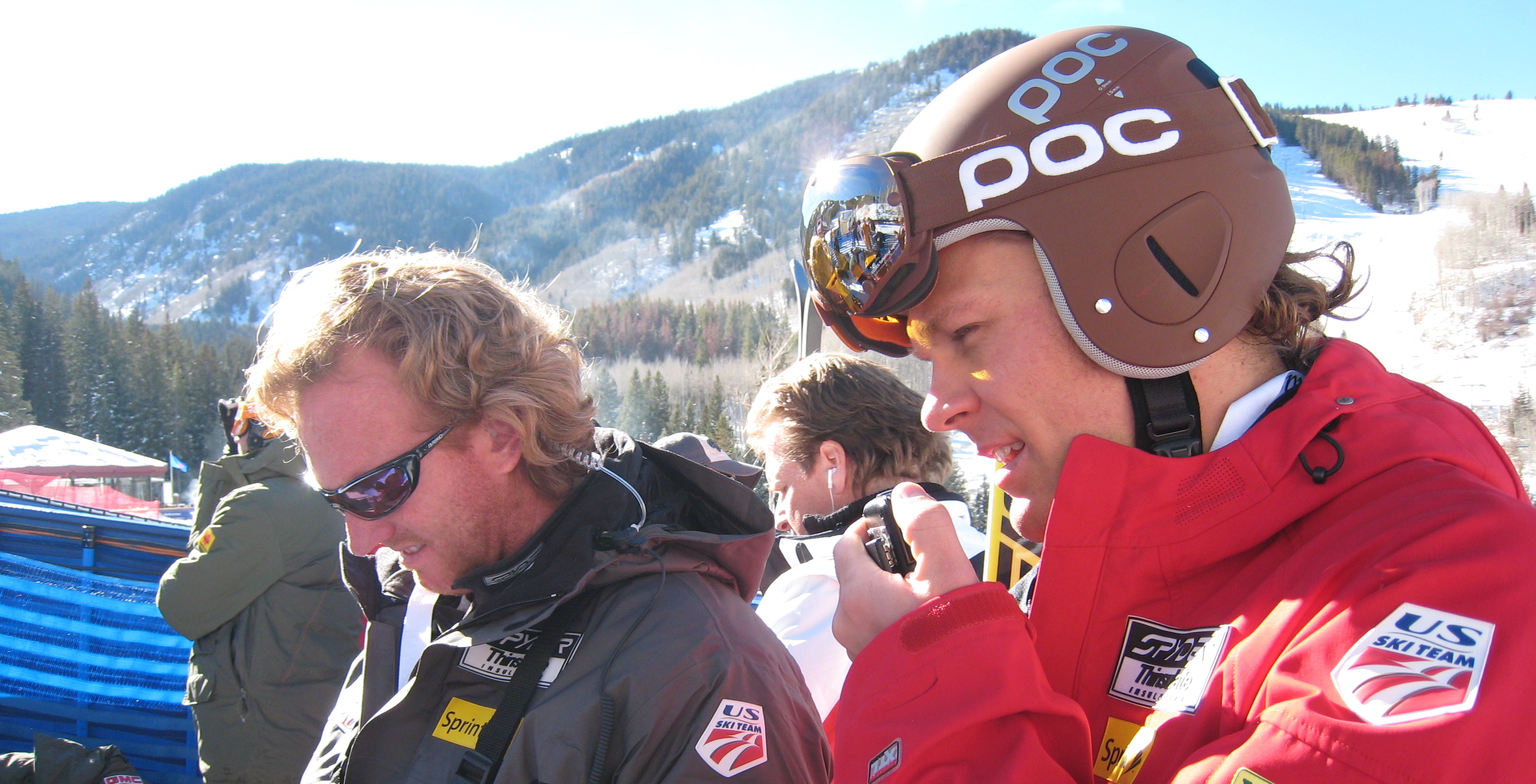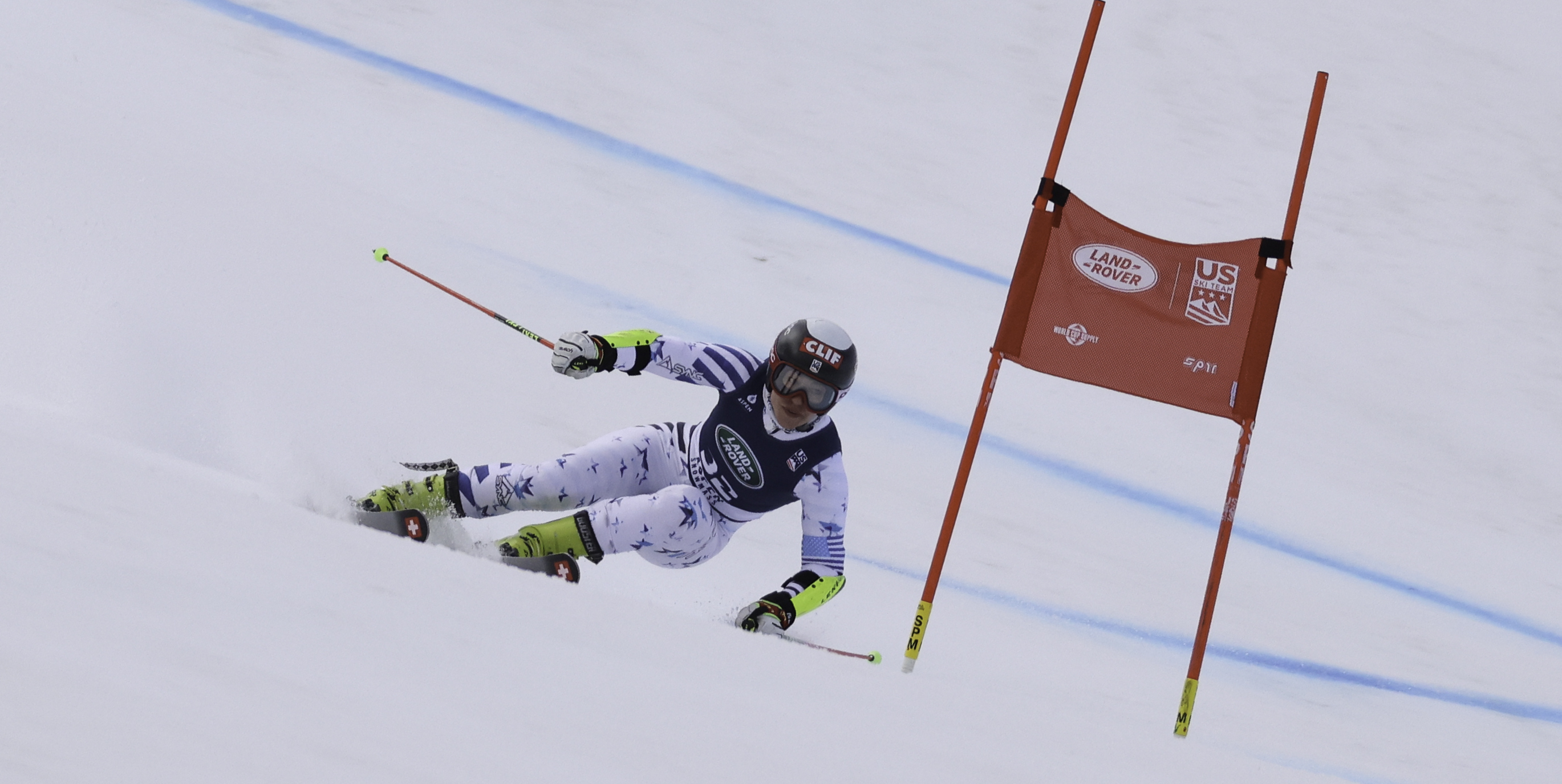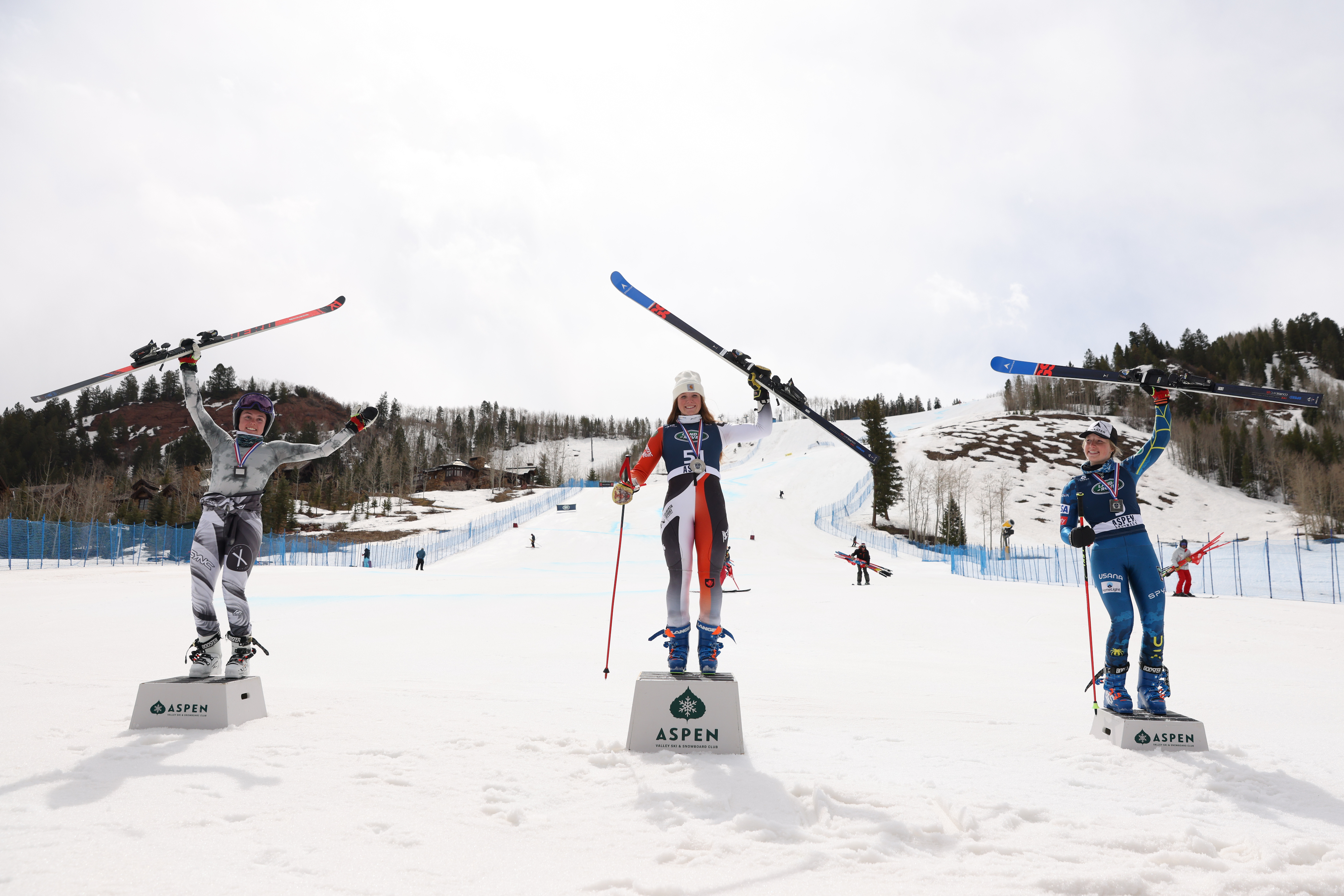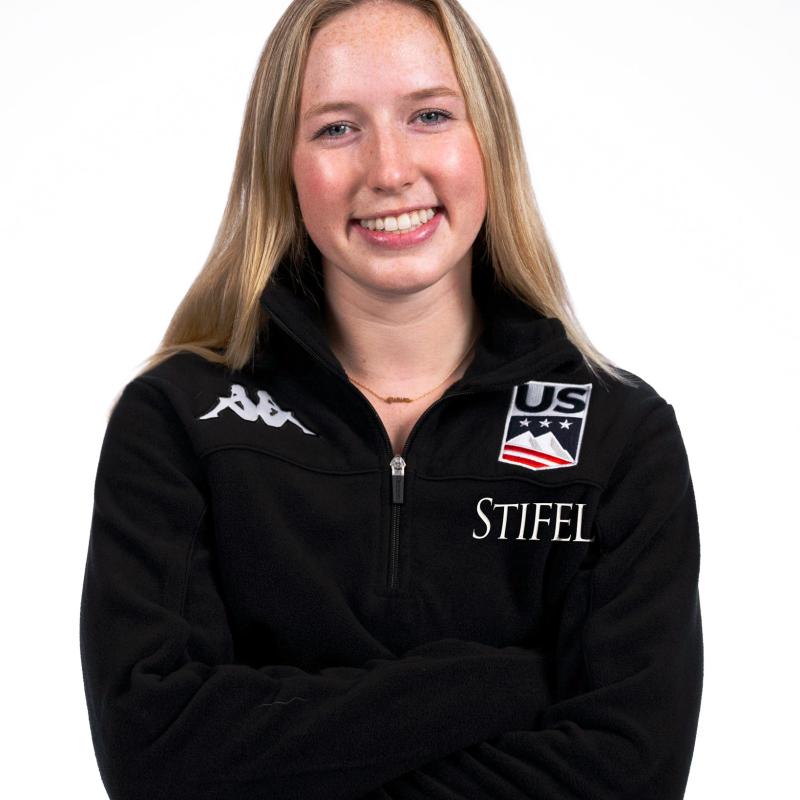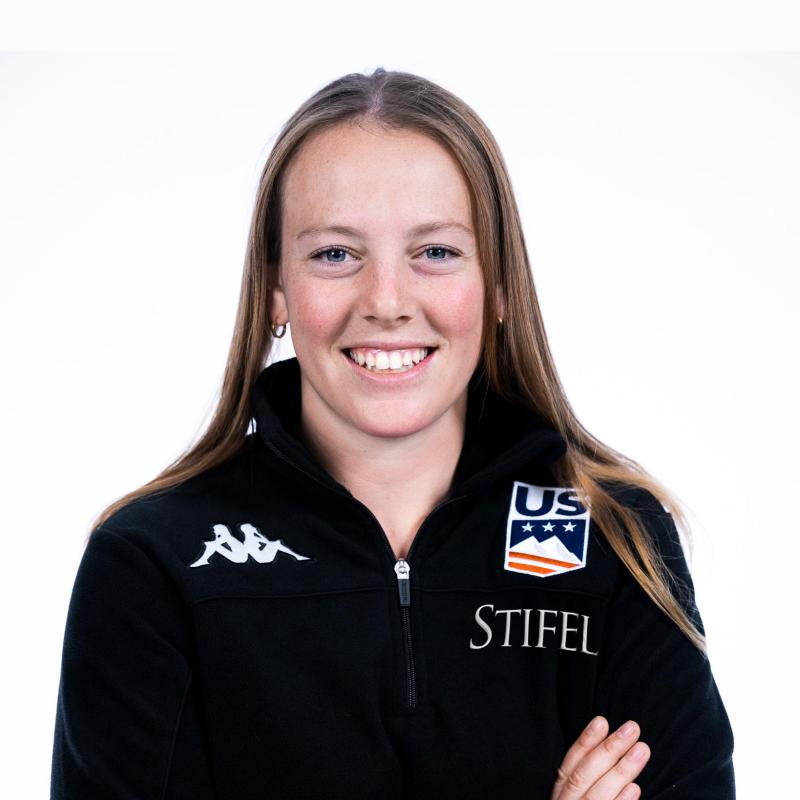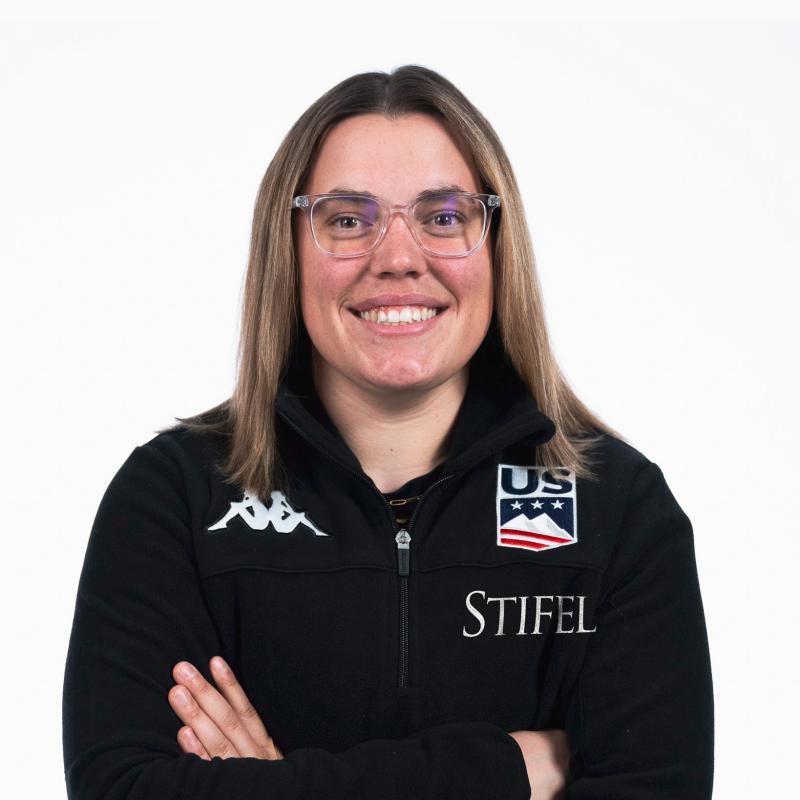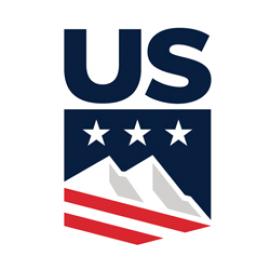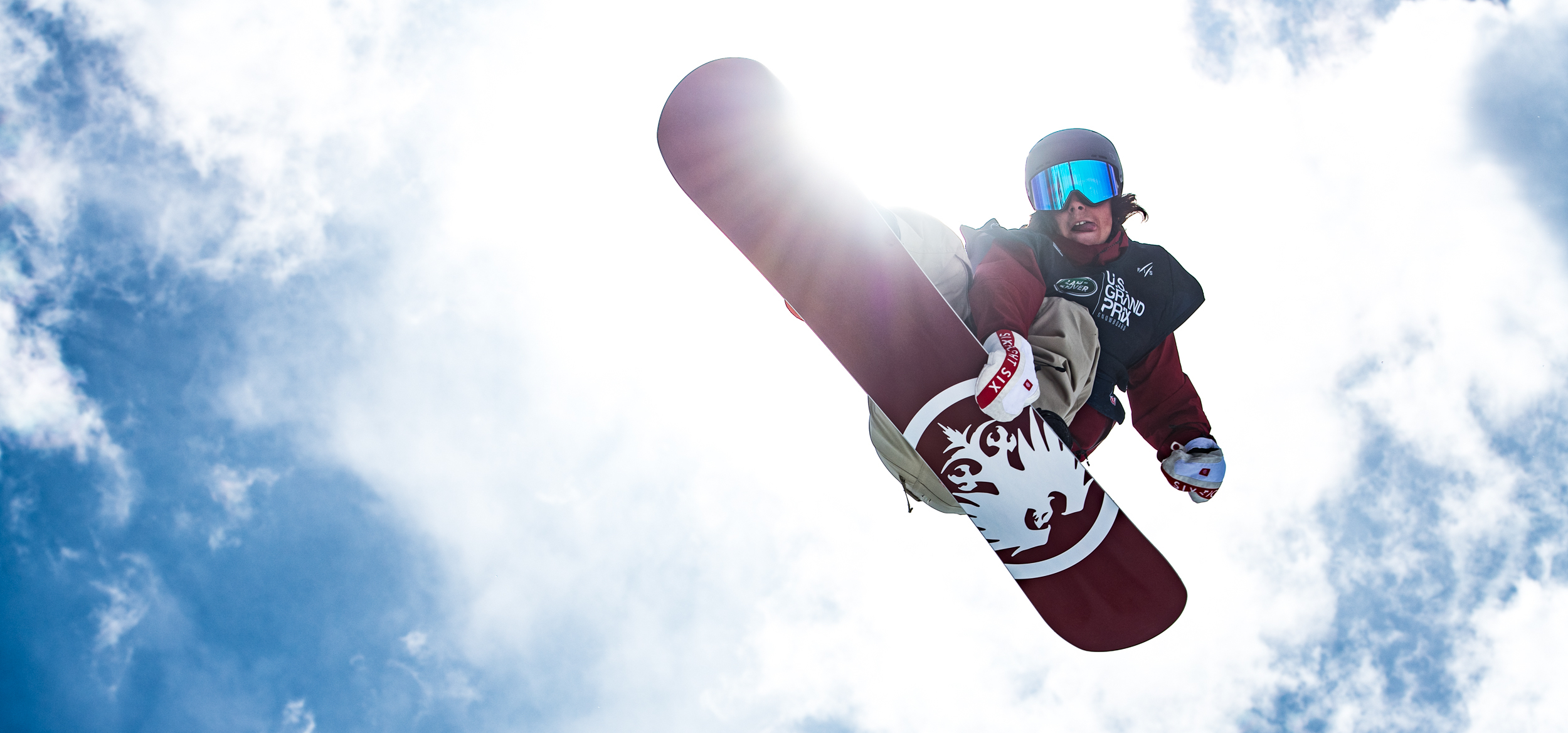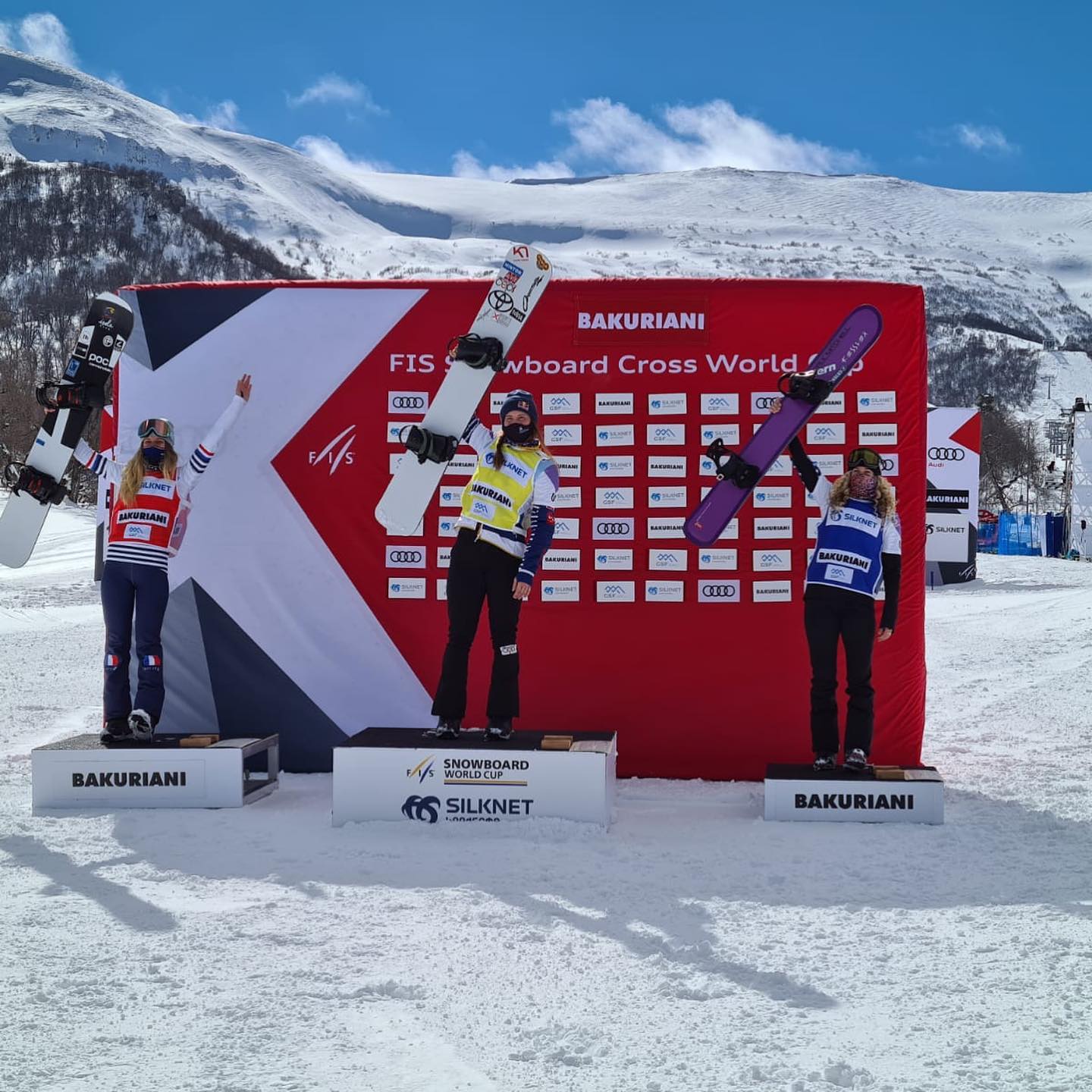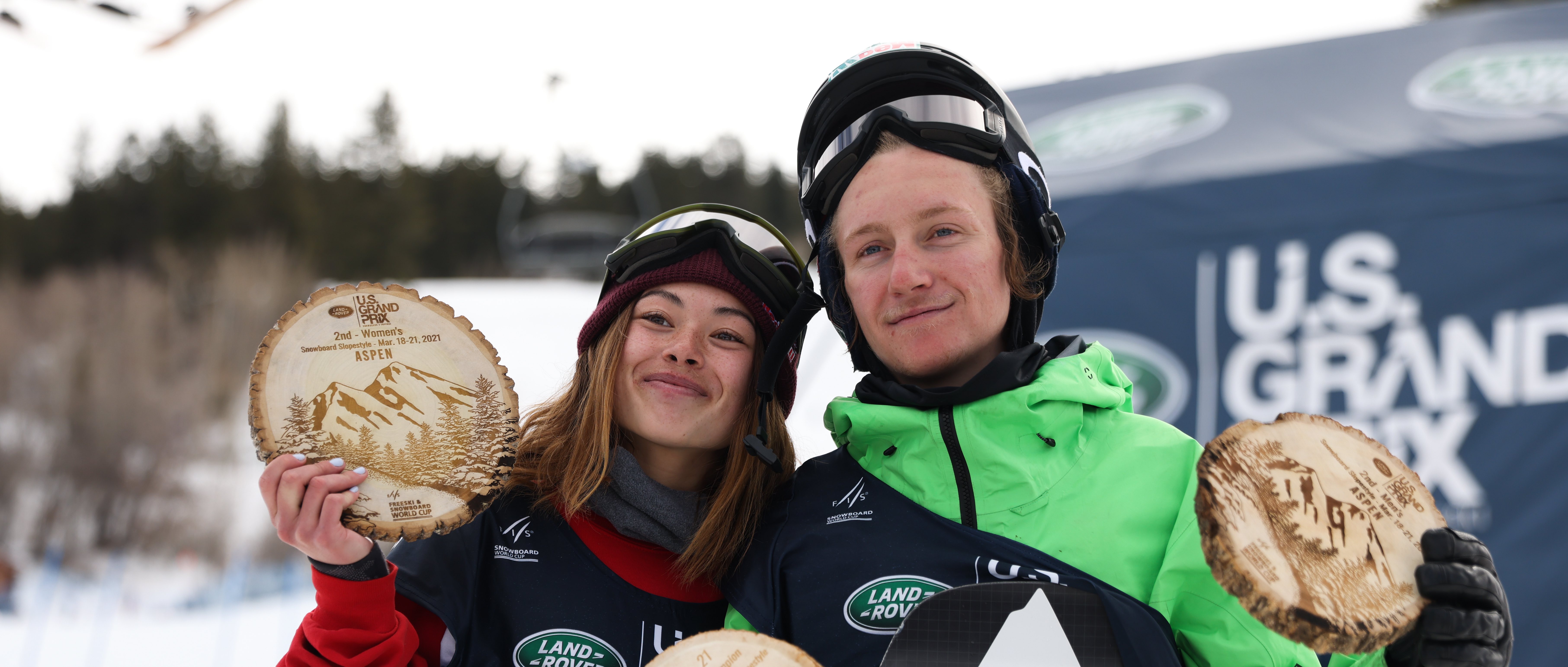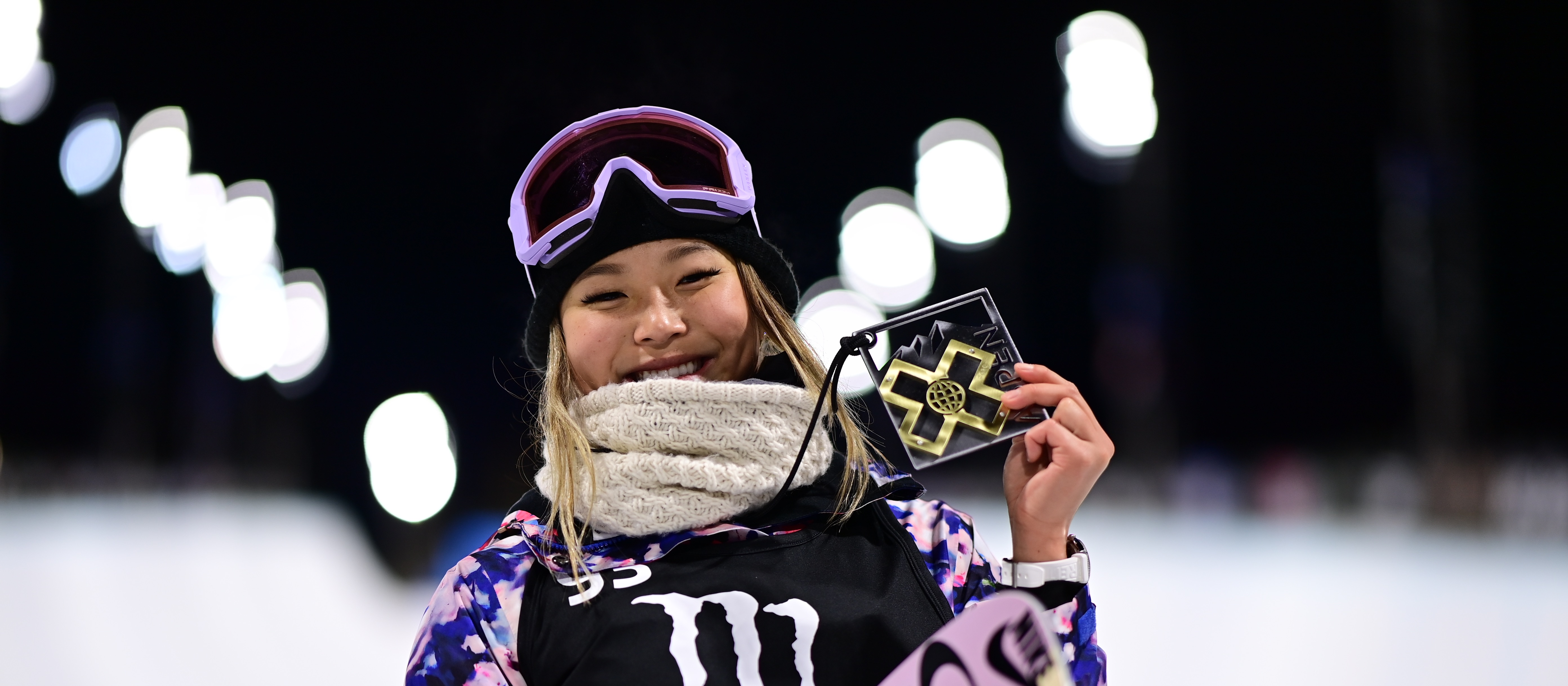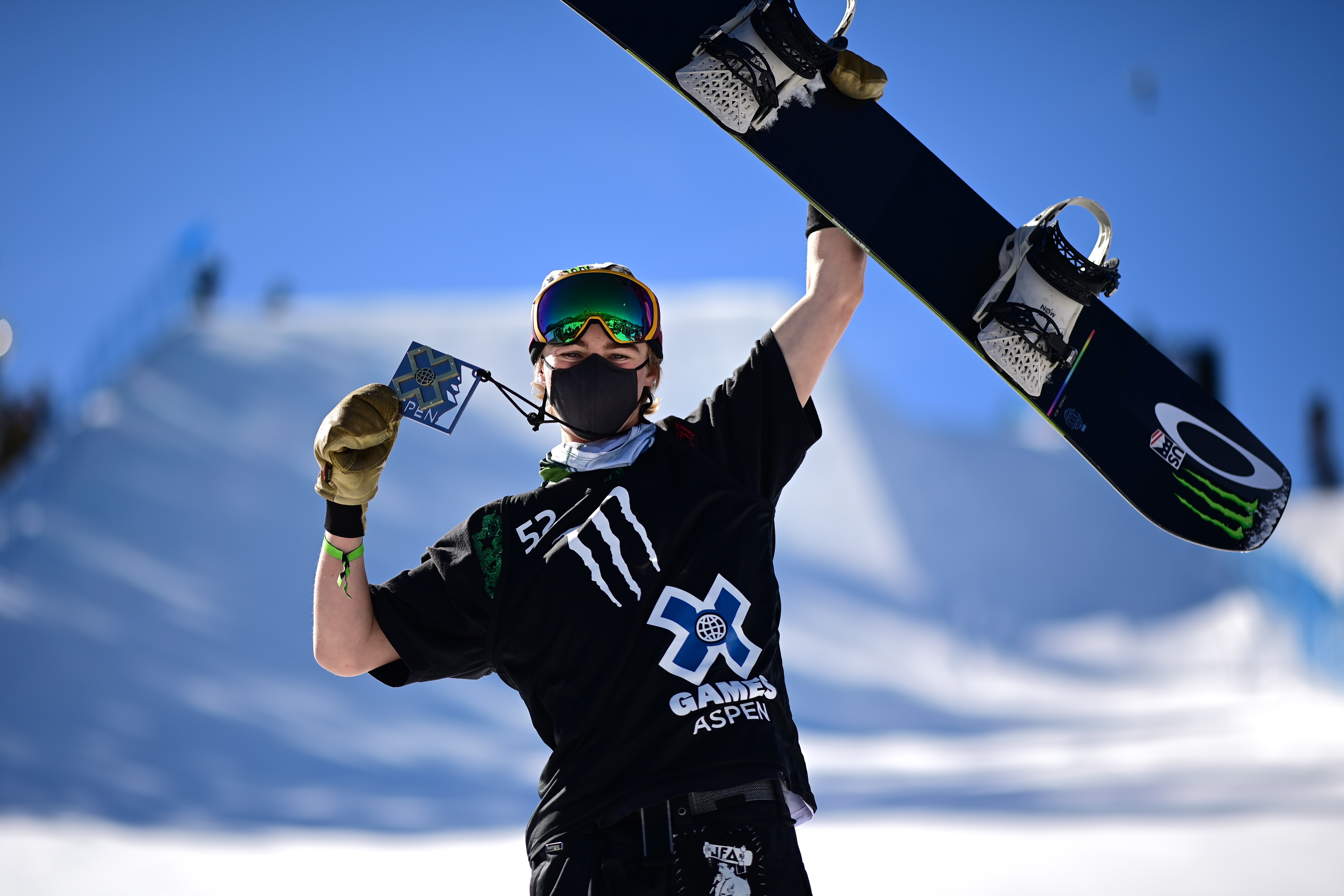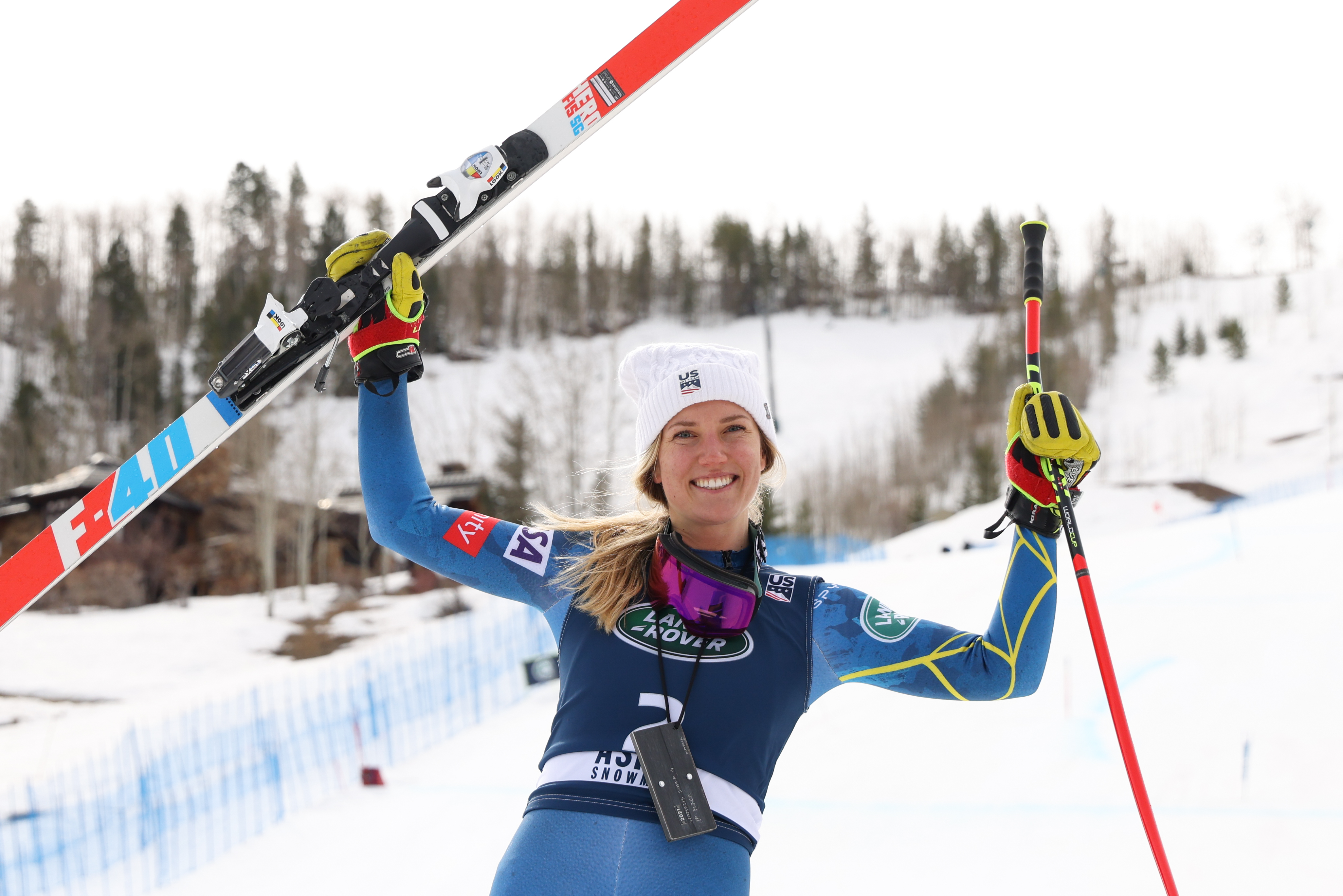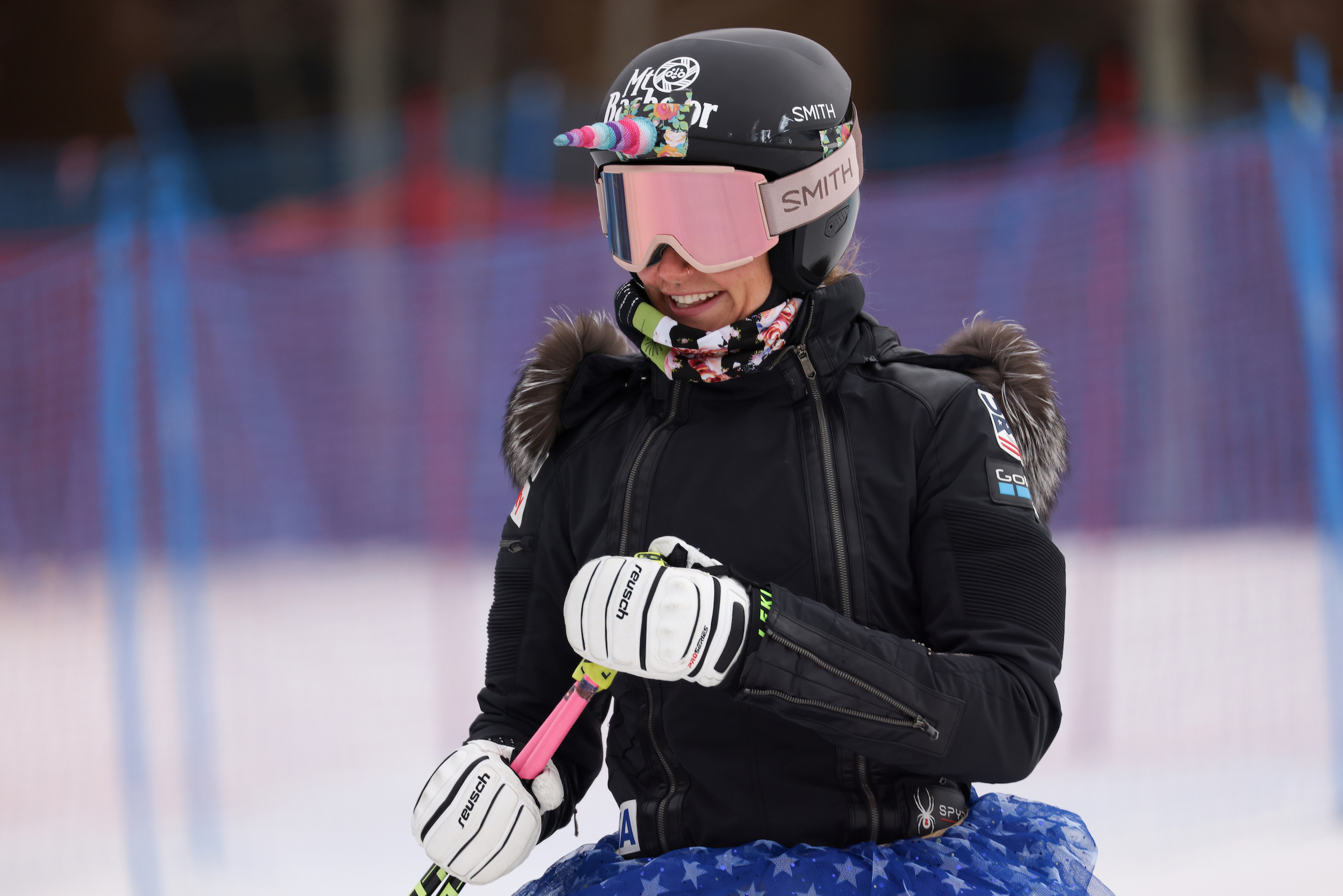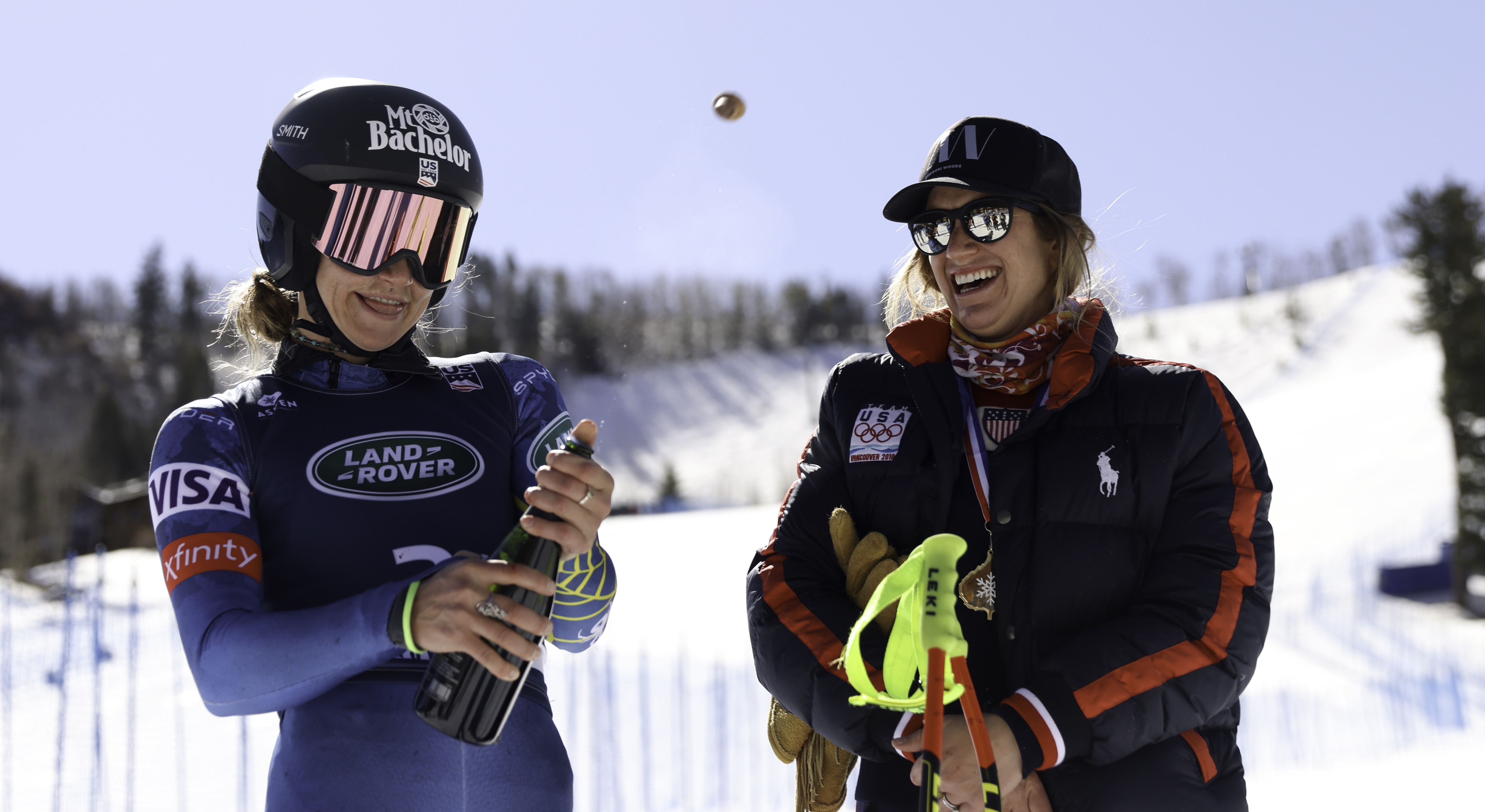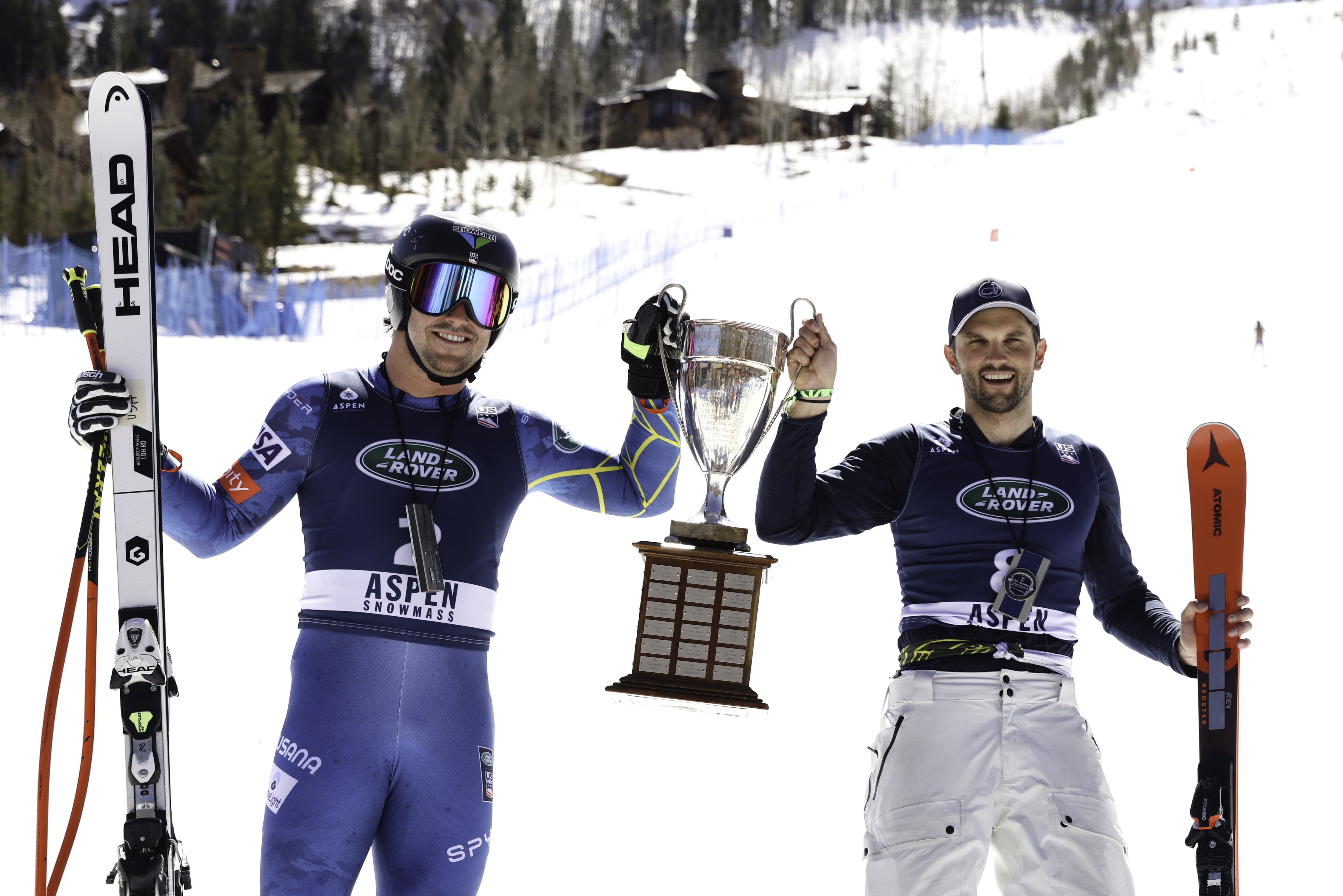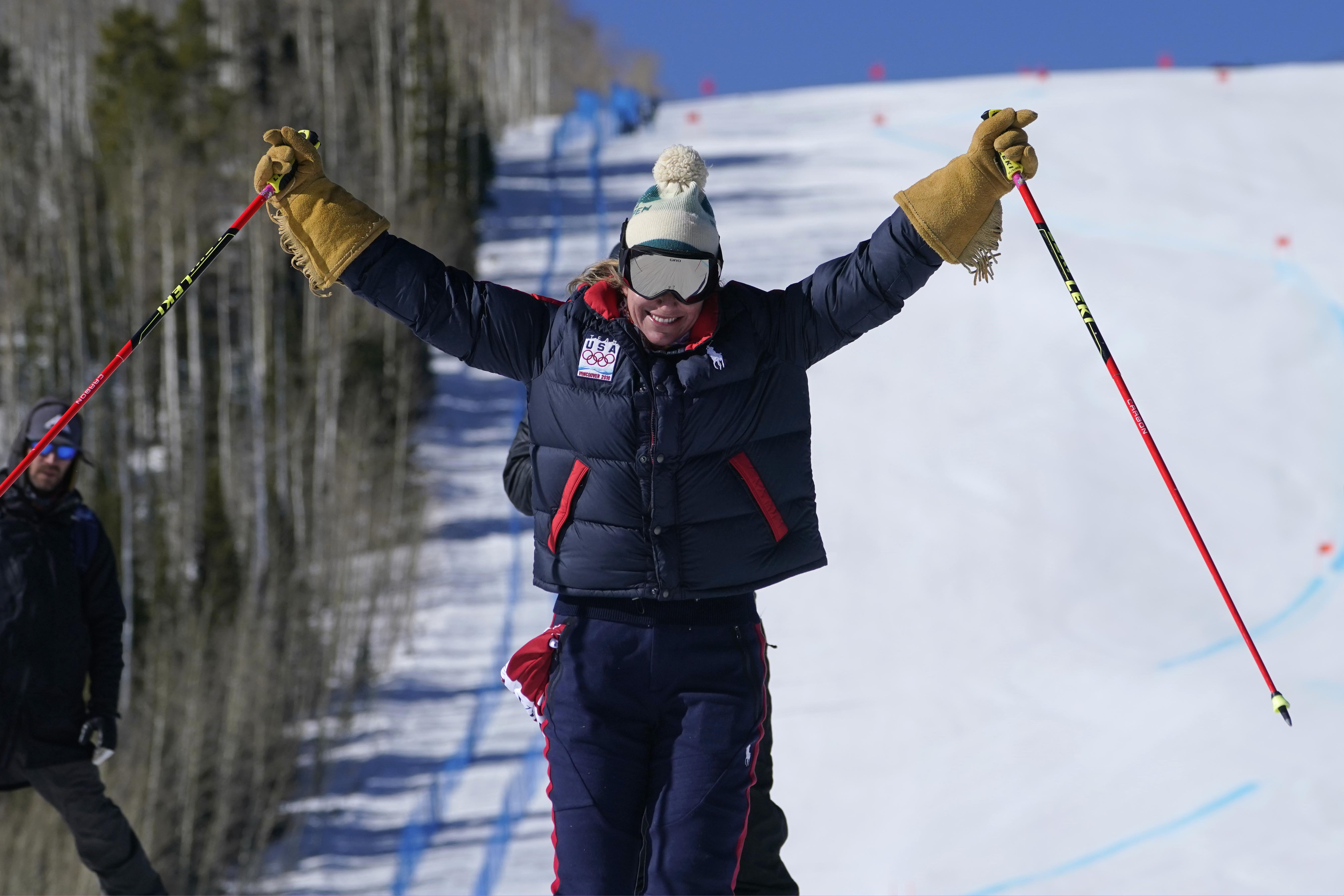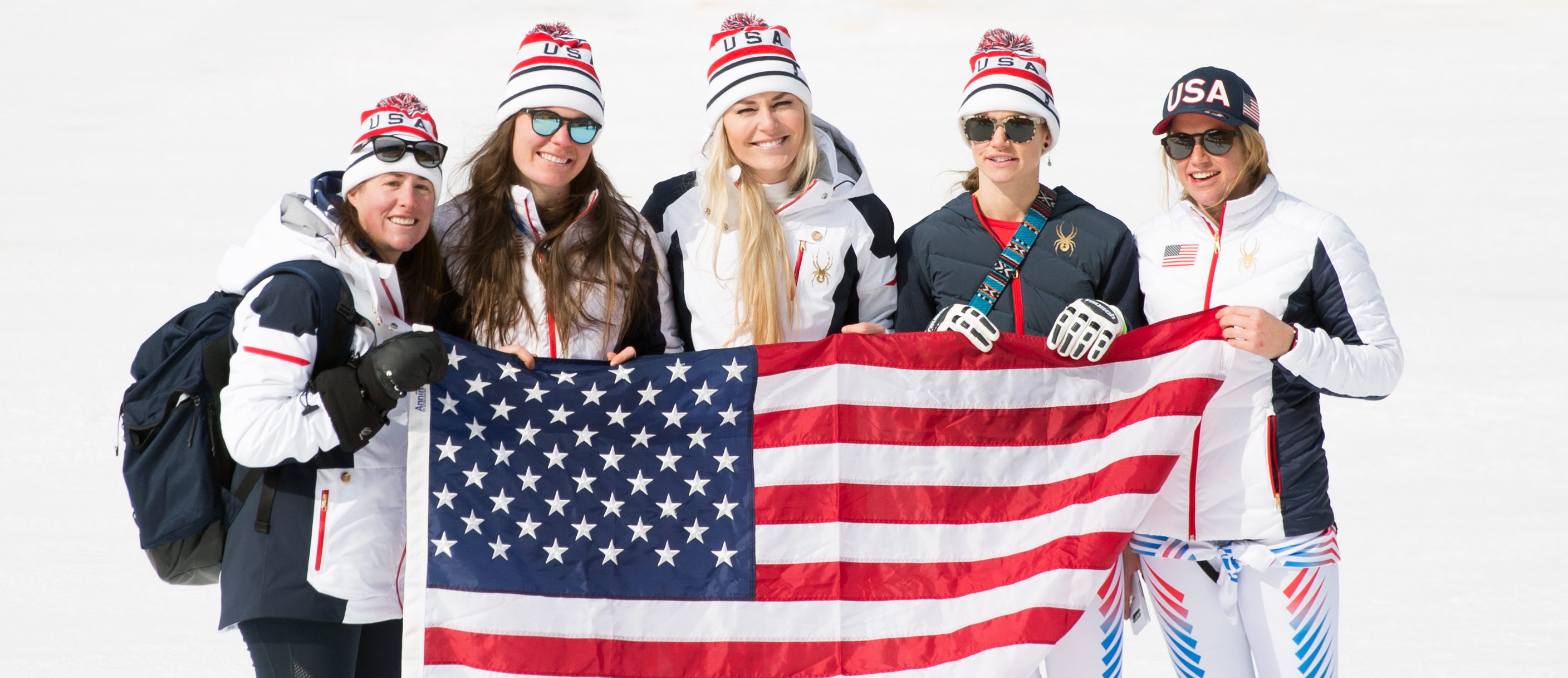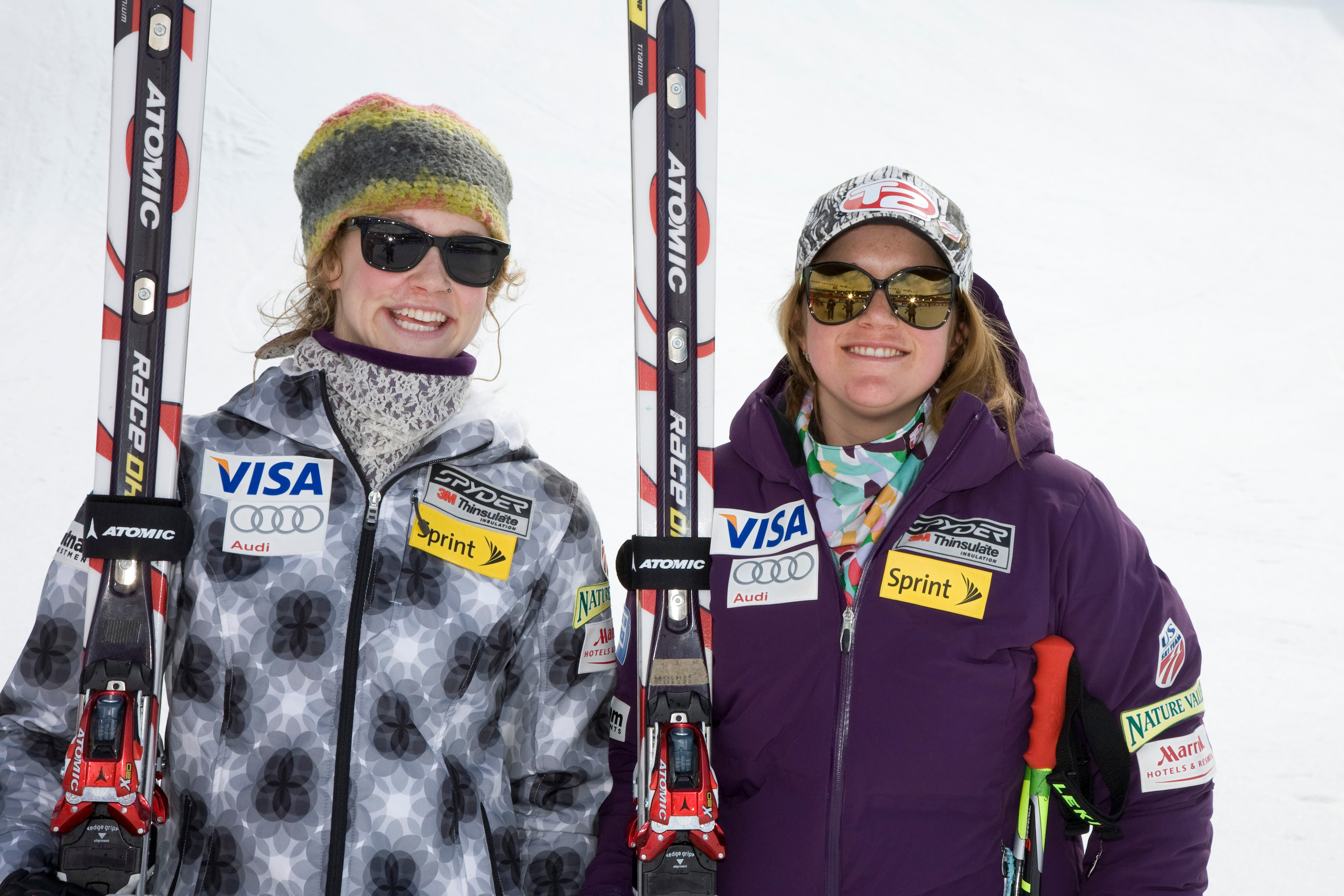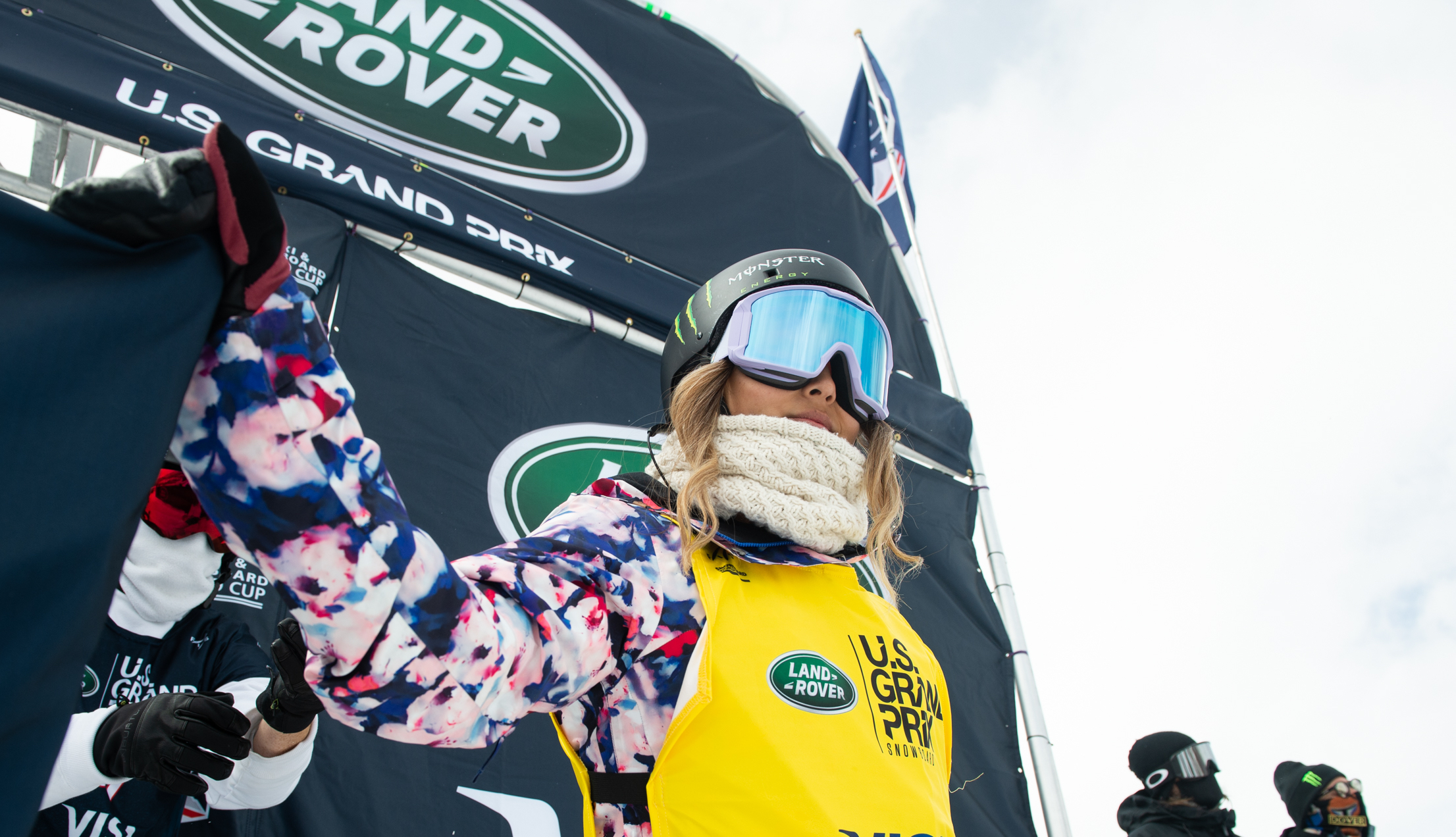Day four of the 2021 U.S. Alpine Championships continued on Saturday with downhill day under the sunshine featuring perfect conditions at Aspen Highlands, Colo. While Colorado native and two-time Olympian Alice McKennis Duran took her final lap, Land Rover U.S. Alpine Ski Team teammate Laurenne Ross won her final career downhill race. On the men’s side, World Cup Dreams Foundation’s new executive director Tommy Biesemeyer came out of retirement to share the Roch Cup victory with former teammate Jared Goldberg.
It was yet another classic sun-splashed spring day in Aspen, and despite the warm weather, the surface set up nicely overnight and was as good as it gets for this emotional day of downhill, which featured McKennis Duran’s final lap and Ross’ career-final downhill race.
McKennis Duran, who grew up in the Roaring Fork Valley and cut her teeth with both the Sunlight Winter Sports Club and Aspen Valley Ski & Snowboard Club, kicked off the second run of the two-run downhill with a pre-race victory lap donning her Olympic gear, hugging current and former coaches and fist-bumping friends as she skied down. McKennis Duran’s husband and follow-cam extraordinaire, Pat Duran, took her final lap with her documenting it on a GoPro and sealing the footage with a kiss. As she skied through the finish, McKennis’ Duran’s father Greg and sister Kendra and family greeted her with cheers, hugs, and champagne.
Ross’ goal coming into the final downhill race of her career was to simply have fun. The two-time national champion did just that, and after leading the first run of the two-run downhill by over three-tenths of a second, put together a solid second run to take the victory over teammate AJ Hurt by .45 seconds. It was a women’s podium full of Land Rover U.S. Alpine Ski Team athletes, with Lauren Macuga rounding it out in third, .89 seconds off Ross’ pace. Hurt and Macuga went 1-2 on the junior podium, with Burke Mountain Academy’s (BMA) Ava Sunshine Jemison landing in third.
Ross, whose parents and sister Allana were in Aspen to watch and cheer her on, was overwhelmed with emotion and gratitude as she celebrated her final shared downhill race with teammate McKennis. “It feels surreal, I don’t know...it was tough today, having Alice do her last race, and just being in the start with her and knowing it was the last time we got to do that together was really emotional and kind of hard to get it together for the race, but I just wanted to have fun,” Ross said. “That was my main goal, but I’m competitive as hell, so I knew I was going to try to go fast so I didn’t really have to worry about that. I’m really happy...happy to be here with all of my friends and of course it’s really wonderful to win my last actual race.”
It was special for Ross to share the podium with two athletes that grew up watching her ski and looking up to her. “It’s really cool to see their talent...and to see their passion and drive. Also, just their compassion for others is really refreshing. I remember being their age and being around the older girls and just being a little bit scared of people, and not really having that camaraderie as much, but it’s nice to get to know them and to see them start to blossom in their careers. It’s exciting.”
Hurt echoed Ross’ sentiments, saying, “I grew up watching Laurenne...and it’s just awesome to stand on the podium next to her for her last race.” She added that ending the season at home in the United States was a welcome surprise, “I didn’t expect to be able to ski any races in the U.S. at the beginning of the year or last year at this time...I kind of figured it was going to be a pretty stacked European season, so it’s been great to be able to be at home and then race on home turf.”
On the men’s side, U.S. Ski Team alumnus and current executive director of World Cup Dreams Foundation, Tommy Biesemeyer, came out of retirement and threw it down right out of the gate during run one. He skied the fastest first run by nearly three-tenths of a second over Goldberg, followed by teammate Sam Morse. Biesemeyer, who came to U.S. Alpine Championships to lower the penalty with his points and support the next generation of downhillers, grabbed his career-first national title and shared it with teammate Goldberg—who each skied a solid second run. Morse rounded out the podium in third, .29 seconds back.
Land Rover U.S. Alpine Ski Team athletes Isaiah Nelson, Jack Smith, and Trent Pennington went 1-2-3 on the junior podium, with Nelson just missing that overall podium once again, landing in fourth place overall.
After seven second-place career finishes in the U.S. Alpine Championships, Biesemeyer was stoked for a victory, but he was even happier to be able to give back to the younger guys. “To cap nationals off with a win is special, and more importantly I was here in Aspen promoting World Cup Dreams Foundation, which I recently took over as the executive director and I’m really passionate about giving back to the next generation to support that World Cup Dream—the one that I lived and I really believe in. To be here in Aspen to piggyback that with a national championship is pretty sweet.”
With his victory on Saturday, Goldberg snagged his second-career national title but his first shared national title. “It’s been really fun to come here and race on a pretty chill venue, and I’ve been wanting to have nationals here for years—we’ve been talking about it and it’s been cool that they put it together. It’s just such a fun venue, and it’s easy for them to set up and for us you can kind of relax and have fun with it, and this time of year that’s what we need after a long World Cup season. I’m just trying to keep my energy through the end of this series, and it’s been fun. I got to go home for a break, and come back to race.” Following tomorrow’s FIS downhill, Goldberg is heading back home to Utah, and then grabbing his surfboard and jetting to his second home in Maui for vacation. “I’m going to surf and not put ski boots on for as long as possible,” he added with a laugh, “I’m tired.
Up next is another FIS downhill for both men and women on Sunday, followed by a day off on Monday. U.S. Alpine Championships kicks off once again on Tuesday, with the women’s alpine combined—one run of super-G combined with one run of slalom.
RESULTS
Women’s downhill
Men’s downhill
2021 U.S. Alpine Championships at Aspen - Event Schedule
Tuesday, April 13, Super-G/Alpine Combined National Championships, Women
Thursday, April 15, Giant Slalom National Championships, Women
Friday, April 16, Slalom National Championships, Women
Media:
Virtual Media Hub
Media Contacts:
Aspen Snowmass
Tucker Vest Burton, (970) 300-7020, tvestburton@aspensnowmass.com
U.S. Ski & Snowboard
Megan Harrod, (435) 714-9393, megan.harrod@usskiandsnowboard.org
